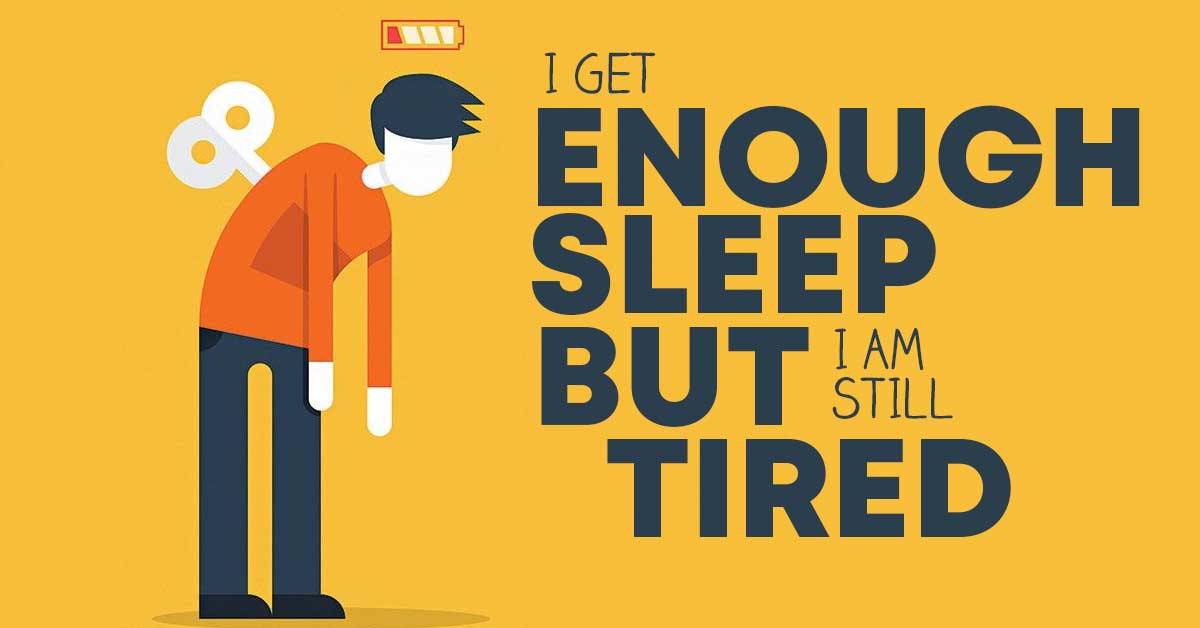General Health Tips & News
Why am I always tired even if I get enough sleep?
By A.S. (staff writer) , published on December 29, 2022

Medicine Telehealth Health
Even while following a strict sleep and exercise schedule, it is common for people to feel fatigued on occasion. The most common energy-zapping reasons are a lack of adequate sleep, high stress, and a bad diet. Fortunately, all of these problems are usually temporary and readily resolved. Try not to be too concerned about it; instead, concentrate on what you can do to improve your condition.
The first step is to ensure that you are sleeping well and for an adequate amount of time. The often advised eight hours of sleep is only a guideline, and the ideal amount of sleep differs from person to person. (In truth, both too much and too little sleep can cause fatigue and other difficulties.) As you get older, your ideal quantity of sleep changes.
To determine how much sleep you require, try shifting your bedtime around until you wake up naturally shortly before your morning alarm. The notion is that if you wake up between deep sleep cycles rather than in the middle of one, you will feel more refreshed and alert rather than groggy and irritable.
Understanding Sleep Pattern
A good night's sleep is about much more than the amount of time spent in bed.
Sleep occurs in multiple cycles of four stages ranging from light to deep. During deep sleep, hormones and other chemicals are produced to repair and rejuvenate the body's organs and tissues, and the glymphatic system, a garbage-collection system, cleans the brain of misfolded proteins and other waste and poisons that accumulate during the day. REM sleep, the rapid-eye-movement phase during which most dreams occur, converts short-term memory to long-term storage, and unwanted ideas and negative emotions are dealt with and even shuttled away.
Why do I wake up tired?
“If you’re getting enough sleep, then you should ideally wake feeling refreshed. “There are many things that can impact your ability to wake up feeling like this. In most cases, however, it’s lifestyle factors that are responsible for fatigue such as poor sleep quality or quantity, or poorly managed stress.”
There could be a number of reasons you’re getting enough sleep but still tired, including:
Hormones
A hormonal imbalance can impact your energy levels. For example, too much cortisol, the stress hormone, can zap you of energy and disrupt sleep. Hormonal changes can affect your energy too, such as during menopause.
Sleep apnoea
This is a condition where the throat gets blocked, either partially or fully, while you’re asleep. The loss of oxygen will wake you briefly, often without you even realizing it. In severe cases, it can interrupt sleep hundreds of times a night, leaving you exhausted.
Mental health
Conditions such as anxiety, depression and bipolar disorder can lead to excessive tiredness.
Thyroid issues
Poor thyroid function can interfere with your sleep. Hypothyroidism in particular can make you feel tired more easily, even if you’re getting enough shut-eye.
Nutrient deficiencies
A lack of certain nutrients such as iron, vitamin B12, and vitamin D can leave you feeling fatigued.
How to wake up feeling refreshed
To achieve a quality night’s sleep, engage in a regular wind-down ritual in the hour before bed, so the brain gets used to calming down before sleep. “I ask my patients to essentially become a toddler and prepare the brain for sleep with a regular ritual,” she says.
1. No screens an hour before bed
The blue light from screens blocks the production of melatonin, the hormone essential for sleep.
2. Reduce caffeine in the afternoon
Skipping your afternoon coffee, particularly after 2 pm, is likely to improve your sleep.
3. Get active
Aim for regular physical activity, ideally 30 minutes most days and in sunlight. “This helps circadian rhythms that regulate sleep. If none of the aforementioned sleep, dietary, and psychological causes of exhaustion apply to you, you should probably seek a checkup. (Getting a routine physical is an excellent idea even if they are not.) In addition to lifestyle reasons, weariness may indicate a medical condition.
References
1. Harvard Medical School. Harvard Health Publishing. Could a vitamin or mineral deficiency be behind your fatigue?
2. National Institutes of Health, National Institute on Aging. Fatigue in older adults.
3. Brown J, Makker HK. An approach to excessive daytime sleepiness in adults. BMJ 2020
Find articles related to: Medicine Telehealth Health
More articles about General Health Tips & News
Back to the Health Tips Index




